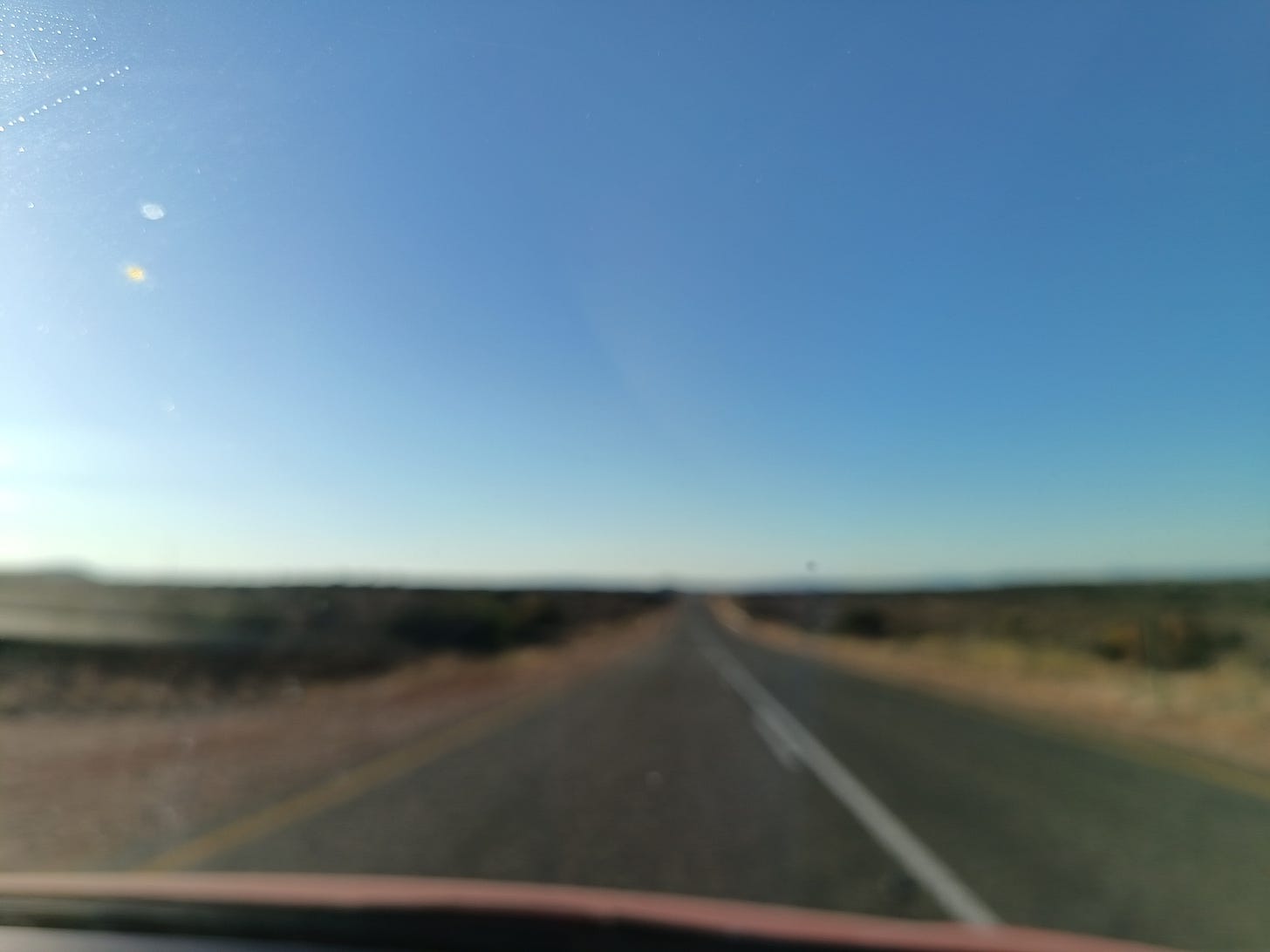*Update / Clarification:
In the original version of this piece, I included a racial slur in full while sharing a lived experience of exclusion and systemic racism. I've since edited it to reflect the harm that language carries, regardless of intention. My aim is always to speak truthfully—but also responsibly. Thank you to those who read with care and context. This space is for honesty, healing, and growth—for all of us.
Excerpt from My First Draft
In my first book draft, I wrote about a particular experience that would happen after school.
Still in primary school—and now, after the molestation—everything felt different.
The world felt magnified. Every experience: big. And me? Small.
When someone could watch us at home, I’d have to walk back from school.
I was lucky it wasn’t far: a right turn out the gate, straight down a long road—longer in Highveld summer—and a short right to number 18.
But the road held more than heat.
Every day I had to walk, dogs barked.
And when it wasn’t dogs, it was kids barking—
throwing words, sometimes stones,
from behind their fences.
One girl in particular had guts. She’d call me ‘k****r’.
That would be my walk of shame. Not even 12.
Walking from a school I was “lucky enough to be in”
to a home where I was supposed to feel safe.
A big house. Privileged.
So I had to be grateful.
I had nothing to complain about.
But inside, I was exhausted.
Carrying the residue of Uncle X.
Schoolwork was an escape—
but the walk just hurt me more.
Everything already felt open—
like I was an open sore, bleeding without blood.
I had to make myself brave.
No—hard.
Hard and sad.
Because some of these kids were at my school.
Their uniforms protected me.
But out of uniform, they were civilians—armed with the freedom to curse.
And when it wasn’t them, it was the dogs.
Barking at my presence.
I wondered:
Did I smell “Black”?
Were the dogs trained to see my skin,
my nose,
my hair—tied back so tight?
I’d have to disappear into a void.
It helped shorten the distance.
Soften the noise.
Who knew that years later, barks—and even my own dog— would scratch where memory hurt.
“Dogs don’t speak, they bark,”
I hear people say.
To me, it’s all violence.
Seeing people dragged by dogs sits so deep.
How can I unsee?
Everything is horror when you’re in the void.
By the time I got home,
I just wanted to disappear.
Do my schoolwork.
Get lost in a dictionary or an encyclopaedia.
My favourite books.
“Sy’s so slim,” they said.
“A smart girl.”
But I was just
a gone girl.
All I could give them was a look.
A sharp one.
From a passer-by.
Someone not from there.
Someone who didn’t belong on their streets.
Inside, I was burning. Angry.
Teeth clenched.
It didn’t matter how smart I made myself.
How clean my hair was.
How neat my school clothes were.
I was never enough.
Just dirty.
In the draft, I describe how one day
I plucked up the courage to say something.
A little girl—plump with hate, I wrote—called me ‘k****r’ again.
I’d had enough.
Though I hadn’t realised:
my “enough” had long run out.
I stopped in my tracks and turned to her.
“I’m not even Black!” I said. Firm.
As if it mattered.
As if it was an educational moment.
“Dan wat is jy?”
“Ek is kleurling,” I say now, back to her, feeling brave.
Ready for something.
At that point, memory cuts out.
But I see myself—wanting to finish her.
Mortal Kombat this out.
She’s shouting from her front door.
An older brother—or uncle—comes out.
Stops her.
Asks what’s going on.
Oh—she has protection for her mouth.
An adult to run to.
I feel the engine inside me calm.
His lips move, his eyes sharp—
he’s saying something,
but I can’t hear.
I turn.
Make my way back down the street.
Turn right to Number 18.
“Aunty Maria, ke khathetse,” I’d say when I got home.
She cleaned the house.
She taught me Sesotho
so at least I could hear if people were speaking about me.
“Jy moet hoor, Nanna,” she’d say.
She knew I needed space after long days,
especially with the migraines I’d get.
I’d lie on my bed,
stare up at the ceiling,
zoom into the pillowcase.
Watch how every thread jumped to the next.
I counted stripes.
Traced floral prints.
The next day: same.
A blur between blurs.
Almost cries sealed tight.
I had to keep reminding myself:
This is the sacrifice.
We all need to sacrifice.
I kept wondering:
When would it end?
When could I finally live?
Where was that button—
that pause button—
for my life
and my everything?



You have the ability to take the reader right to that road, to the bedroom, to the pain. My heart ached for little Yvette but she is a fighter en sy is baaie Baaie slim.
I am so sorry you had to live through this. 💔Those children didn't see the little princess Yvette. They didn't see, not because Yvette didn't shine of dignity, but because their eyes were covered with scales of lies. May your little inner child princess shine brighter that ever with life and love.